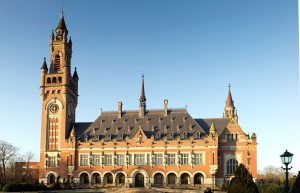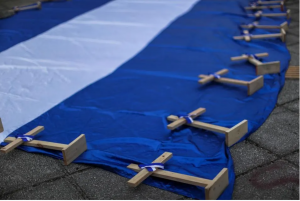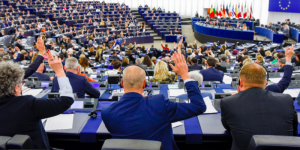By: Sarah Sandoval
Impunity Watch News Staff Writer
THE HAGUE, The Netherlands – On March 5, 2024, the International Criminal Court’s (ICC) Pre-Trial Chamber II issued warrants for the arrest of two Russian military officers, arising from the ICC’s investigation into the ongoing situation in Ukraine.
 |
The Court issued arrests warrants for Sergei Ivanovich Kobylash and Viktor Nikolayevich Sokolov regarding their involvement in attacks directed at civilian objects, causing excessive incidental harm to civilians, and inhumane acts. These offenses are in direct opposition to the Rome Statute, the treaty which governs the ICC. The Pre-Trial Chamber II, consisting of Judge Rosario Salvatore Aitala, Presiding, Judge Tomoko Akane and Judge Sergio Gerardo Ugalde Godinez, found that there are reasonable grounds that Kobylash and Sokolov are responsible for missile strikes against Ukrainian electric infrastructure from October 10, 2022 to March 9, 2023. These alleged missile strikes were carried out by forces under the command of Kobylash (Commander of the Long-Range Aviation of the Aerospace Force at the time) and Sokolov (Commander of the Black Sea Fleet during the time of the strikes). The strikes were either directed at civilian objects, or the damage to civilians would have been clearly anticipated and excessive.
In a statement released by the ICC, Prosecutor Karim A.A. Khan KC says, “all wars have rules. Those rules bind all without exception.” Kobylash, a Lieutenant General in the Russian Armed Forces, and Sokolov, an Admiral in the Russian Navy, join only two others in the list of individuals with outstanding warrants arising out of the situation in Ukraine. Vladimir Vladimirovich Putin, President of the Russian Federation, and Maria Alekseyevna Lvova-Belova, Commissioner for Children’s Rights in the Office of the President of the Russian Federation, also have outstanding warrants for the unlawful deportation of children and the unlawful transfer of children from occupied areas of Ukraine to the Russian Federation. Both warrants were issued on March 17, 2023.
Kremlin spokesman Dmitry Peskov told the BBC that Russia does not recognize the ICC’s arrest warrants, as they are not under the jurisdiction of the Rome Statute. As such, it is unlikely that Kobylash and Sokolov will be extradited into the custody of the ICC.
For further information, please see:
ICC – Rome Statute of the International Criminal Court – July 1, 2002
BBC – Russia-Ukraine war: Moscow ignores arrest warrants for Putin commanders – March 6, 2024



